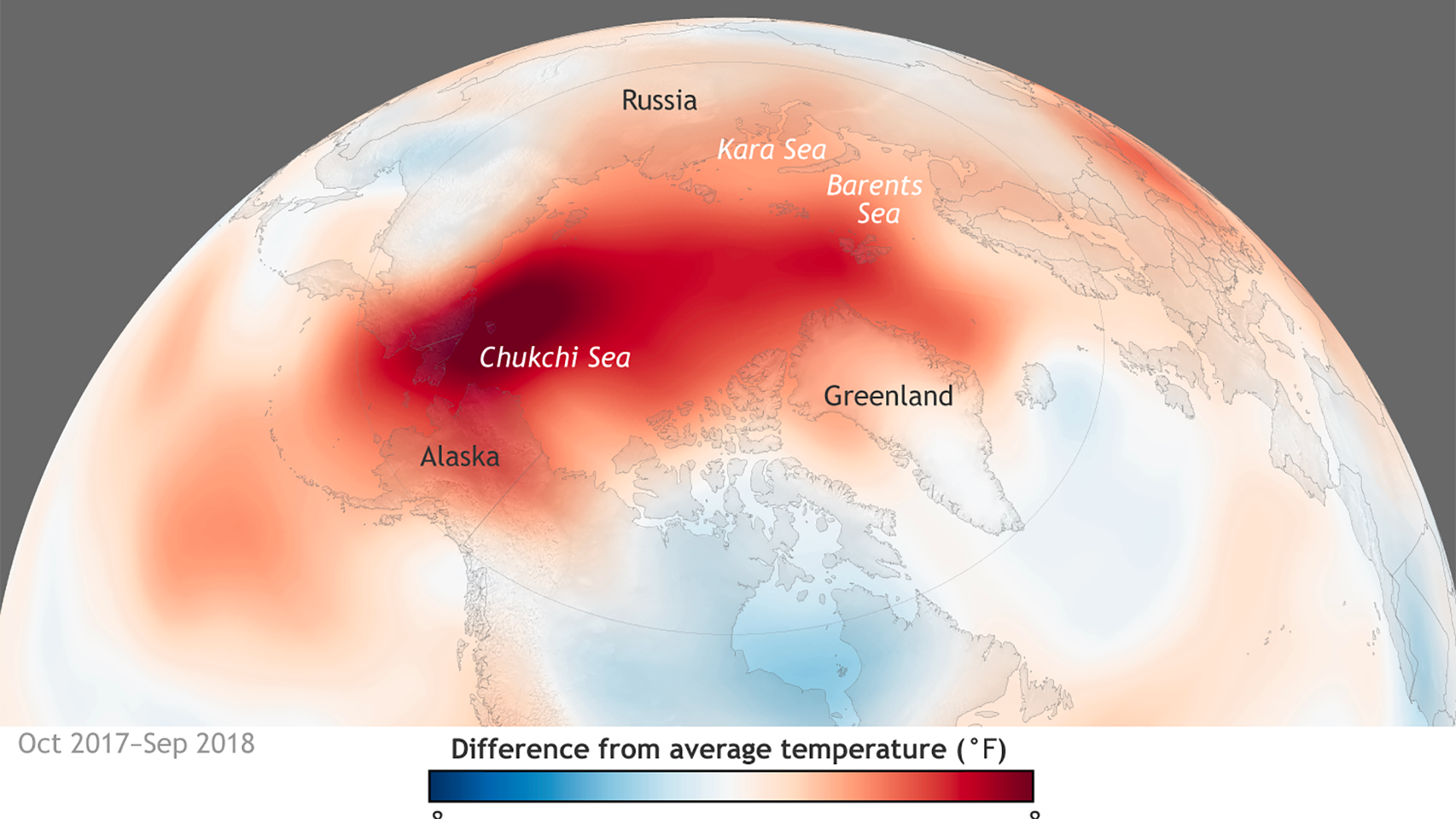Rapid global warming is bringing unprecedented changes to Arctic
Add Axios as your preferred source to
see more of our stories on Google.

Arctic surface air temperature anomalies during 2018, which was the second-warmest year on record in the region. Credit: Climate.gov
In yet another disconnect between the Trump administration's science findings and its climate policies, a new report released Tuesday found that rapid Arctic climate change has pushed the region into "uncharted territory," with a host of sweeping changes that are transforming the vast area.
Why it matters: The Arctic contains some of the most productive fisheries in the world, and it acts as the Northern Hemisphere's refrigerator, supplying most of the frigid air that invades the U.S., Europe and Asia during winter. As the report lays out, some scientists have shown that the rapidly warming Arctic is altering weather patterns in the mid-latitudes, contributing to deadly extreme events.
Details: The new report, known as the Arctic Report Card, is a peer-reviewed document produced by dozens of researchers. The National Oceanic and Atmospheric Administration (NOAA) oversaw the research and the report's release at the annual meeting of the American Geophysical Union in Washington.
Findings: The report found that the Arctic continues to warm at about twice the rate of the rest of the globe, resulting in less snow and ice to reflect incoming sunlight.
- The annual average air temperature across the Arctic from October 2017 through September 2018 was the 2nd-warmest such period on record, just behind the same period in 2015–2016.
- All 5 of the hottest years on record in the Arctic have come since 2014. Records extend back to 1900. "The multi-year persistence of record and near-record warmth since 2014 is unlike any other period on record," the report states.
- As ocean temperatures increase, toxin-producing phytoplankton have increased in number and geographical range, leading to a steep rise in paralytic shellfish poisoning in humans, the report says. Alaska now has one of the highest incidences of this shellfish poisoning in the world.
- Populations of reindeer and caribou are declining, with a drop of 56% from a total estimated population of 4.7 million to about 2.1 million over the past two decades. The largest declines have been seen in populations across the U.S. and Canada.
Startling sea ice statistics:
- The Arctic sea ice cover is becoming thinner, younger and more prone to melting each summer.
- In March 1985, sea ice that had survived at least 4 summers made up 16% of the Arctic ice pack at winter maximum. In March 2018, it made up less than 1%.
- During 2018, there was an unprecedented mid-winter sea ice loss in the Bering Sea, which shocked scientists. This ocean, which is typically ice-covered at the time, lost an area of ice the size of Idaho during February.
Yes, but: The Trump administration continues to issue climate science reports that show this is an urgent issue to address, while pursuing policies to boost consumption of fossil fuels that cause global warming. This dichotomy was visible at the press conference, when reporters pressed NOAA acting administrator Tim Gallaudet on whether the science agency has communicated its findings to the White House.
“I personally have not briefed the president on climate change. I can’t answer the statement of has anyone ever, I don’t know that."— Tim Gallaudet, an oceanographer and retired rear admiral
Go deeper:
